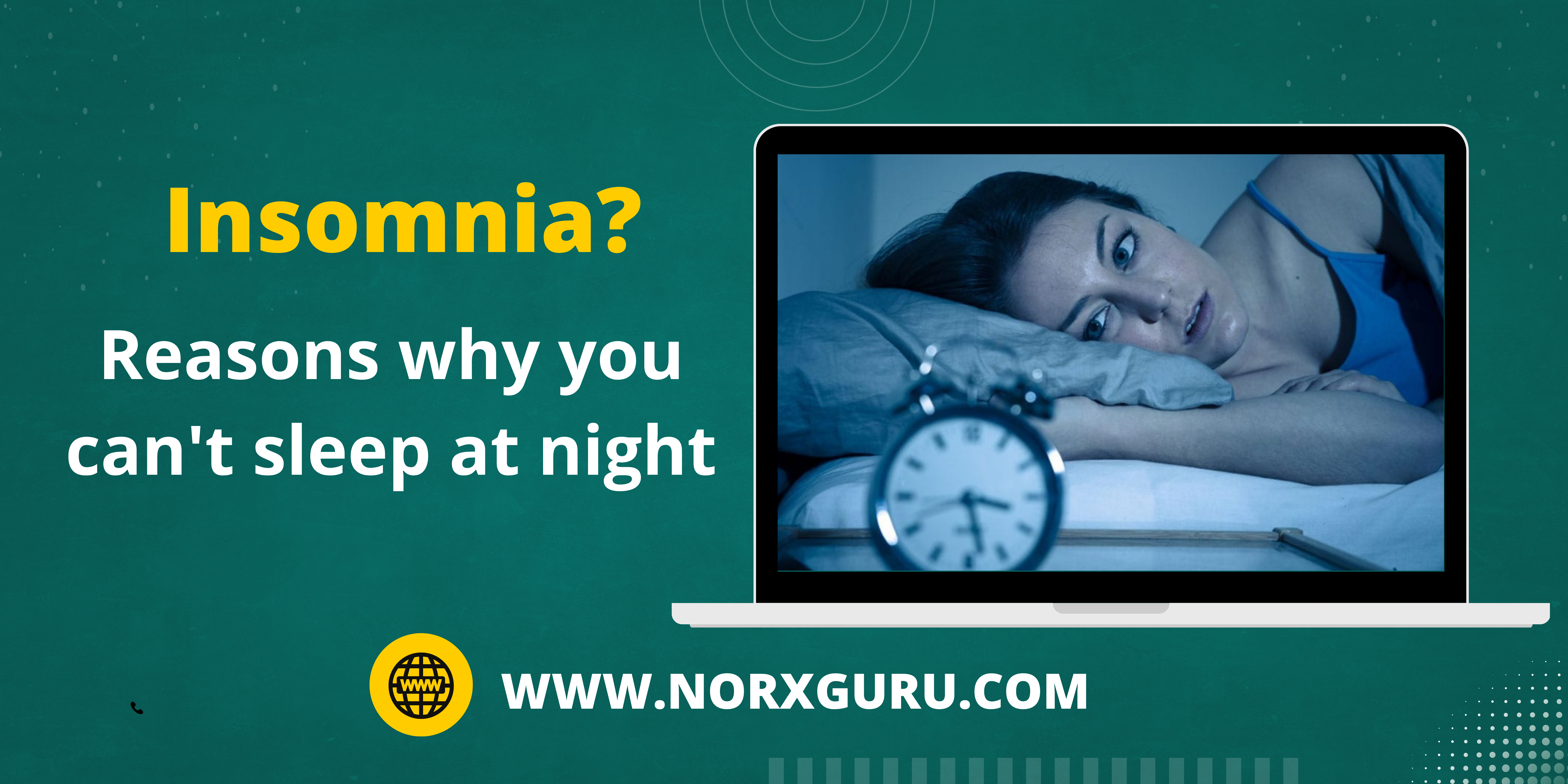One sheep, two sheep, three sheep… Yeah, it doesn’t seem to be working. There can be various reasons why you can’t sleep at night. Medications, stress, eating habits, sleep environment, and lifestyle. Are you also waking up in the middle of the night and unable to fall back asleep? It’s one of the worst places to be for two things, your night is ruined, and the next day is also likely to be the same since you didn’t get enough sleep.
But why? Why can’t you sleep at night?
Your lifestyle choices.
These few habits can be one of the reasons behind your sleeplessness.
- Consuming too much caffeine – It’s no mystery that caffeine is a stimulant; for most, it is the first drink of the day that can get you to even talk to people. However, having caffeinated products later in the day can prevent you from sleeping at night. Avoid coffee, food, and soft drinks that contain caffeine later in the evening and replace it with soothing herbal tea.
- Naps – Taking short naps throughout the day may help some feel energized and perform daily activities more efficiently. However, napping does not help your body recover as much as a night of proper sleep. Limiting naps and avoiding them later in the day may help you sleep better.
- Snacking right before bedtime – Eating foods high in fat or protein need heavy digestion and may interrupt sleep. It may also cause heartburn, which can negatively impact your physical health. It is recommended by doctors that you eat a light meal at least 2 to three hours before bedtime to get sufficient sleep.
- Alcohol before bedtime – Ideally, a couple of glasses of wine ( or vodka ) will help you doze off. However, it can also be the reason you wake up at 3am looking for food and a bucket at the same time. Experts have recommended having one glass of alcohol at least 2 to 3 hours before bedtime.
- Using your bed for other reasons – The human brain works best with associations. For example, you may associate a place with a beautiful family memory or a song with a tragic ex. Similarly, your bed should be used only for sleeping and wind-down. If you work or eat while in bed, your brain will not associate it with just sleep but also with a stimulating activity which is likely to be a cause why you can’t fall asleep.
- Sleep environment and sleep hygiene – Your sleep cycle is sensitive to where you sleep at night. If your surrounding is filled with noise and has direct light coming in from the window or if the room temperature is either too hot or too cold, it is likely to have an unfavorable impact on your sleep. If you have poor sleep hygiene, it is also likely to be a reason why you can’t fall asleep and why your quality of sleep isn’t good,
A health condition.
If you have been having trouble sleeping for a long time, it may be because of a physical or mental ailment.
- Anxiety or stress – Anxiety and insomnia go along better than peanut butter and jam on bread. You may be anxious about meeting someone after a long time or an important office meeting or school test, which may keep you from sleeping. Treating anxiety is a long process, especially in an entangled cycle with insomnia. It is advised that you look for professional help if it is a recurring pattern. Doctors prescribed medication like Alprazolam or Xanax to treat anxiety and even panic disorder.
- Insomnia – Insomnia can be both acute and chronic and should not be confused with a couple of sleepless nights. Insomnia is a sleeping disorder where one can have a problem falling or staying asleep. Acute insomnia lasts from one night to a few weeks, while chronic insomnia is when you have its symptoms three nights a week for at least three months or more. Doctors prescribe medication like Zolpidem and Ambien that help you fall asleep and even stay asleep for 7 to 8 hours to get better rest.
- Breathing problems – Sleep apnea, asthma, or other respiratory disturbances at night can make it difficult to fall asleep. What is even bothersome is that a slight irregularity in your breathing can wake you up and make it difficult for you to go back to sleep.
- Pain – Pain from a health condition causes a lot of discomforts, which is why painkillers also have sedative properties. Pain from arthritis and fibromyalgia can flare up at night, or pain from an injury may get worse when you turn over or can’t sleep in your preferred position. Medications like Carisoprodol and Soma may help you treat pain and discomfort to get better sleep.
- Mental health condition – Apart from anxiety and stress, mental disorders like depression or schizophrenia are known to be the cause of insomnia. Poor sleep can also worsen the condition and symptoms of your mental health.

